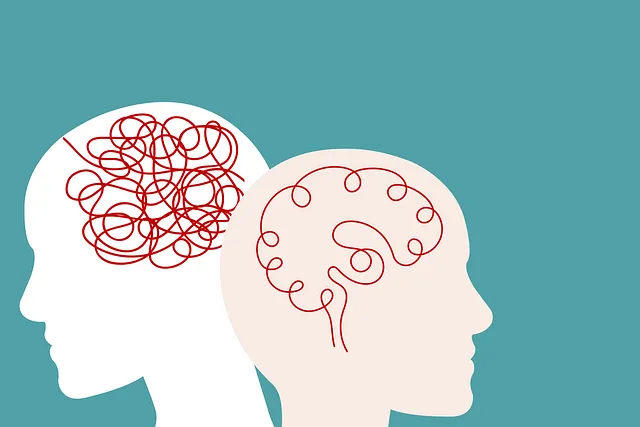Mental health advocacy is transforming public attitudes and access to care. Organizations like Kaiser Lafayette offer initiatives like self-awareness exercises, risk management planning, and holistic treatments, empowering patients and providers. Their inpatient mental health services provide 24/7 monitoring, multidisciplinary teams, and tailored programs for diverse needs. Through podcasts and education, they destigmatize anxiety and promote emotional healing. Effective strategies include positive thinking campaigns, cultural competency training, and community engagement, leading to improved patient outcomes and long-term coping skills.
Mental health advocacy initiatives play a pivotal role in fostering holistic care and improving patient outcomes. This article delves into the significance of advocacy, exploring its impact on mental healthcare systems. We examine Kaiser’s inpatient mental health services, highlighting their role in addressing growing needs. With a focus on advocate-led initiatives, it dissects effective strategies for successful programs. Success stories from Kaiser Lafayette demonstrate how advocacy can transform patient experiences, emphasizing the positive ripple effects of dedicated mental health support. Discover how these initiatives contribute to a healthier, more supported community.
- Understanding Mental Health Advocacy: Its Role and Impact
- Kaiser's Inpatient Mental Health Services: An Overview
- The Need for Advocate-Led Initiatives in Mental Healthcare
- Effective Strategies for Mental Health Advocacy Programs
- Success Stories: How Advocacy Improves Patient Outcomes at Kaiser Lafayette
Understanding Mental Health Advocacy: Its Role and Impact

Mental health advocacy plays a pivotal role in shaping public perception and improving access to quality mental healthcare services. It involves raising awareness, challenging stigma, and promoting understanding of various mental health conditions. Advocates work tirelessly to ensure that individuals facing mental health challenges receive the support and treatment they need, advocating for policies and practices that prioritize emotional regulation and overall well-being.
In initiatives like those led by organizations such as Kaiser in Lafayette, self-awareness exercises and risk management planning for mental health professionals are integral components. These strategies empower both advocates and healthcare providers to manage their own mental health effectively, fostering a culture of compassionate care. By integrating these practices, Kaiser aims to enhance the quality of services they provide, ensuring that patients receive holistic treatment tailored to their unique needs. This approach underscores the importance of advocacy in creating a supportive environment for those navigating the complexities of mental health.
Kaiser's Inpatient Mental Health Services: An Overview

Kaiser’s Inpatient Mental Health Services provide a specialized and comprehensive care environment for individuals experiencing severe mental health crises. With facilities like the one in Lafayette, Kaiser offers around-the-clock monitoring and intensive treatment, focusing on stabilizing patients and facilitating their recovery journey. The program is designed to cater to diverse mental health needs, ensuring personalized care through multidisciplinary teams consisting of psychiatrists, psychologists, nurses, and social workers.
These services prioritize not only the management of acute conditions but also the promotion of long-term mental wellness. Through Resilience Building and Emotional Regulation strategies, patients are equipped with valuable coping mechanisms and skills to navigate future challenges. Kaiser’s Mental Wellness Podcast Series Production, in collaboration with these inpatient services, further extends their reach, providing accessible resources for mental health awareness and education to the broader community.
The Need for Advocate-Led Initiatives in Mental Healthcare

In today’s digital era, where mental health challenges are increasingly prevalent, advocate-led initiatives play a pivotal role in transforming care. Many organizations, such as Kaiser, recognize the importance of these efforts, particularly when addressing complex issues like anxiety and providing effective Anxiety Relief. The traditional model of mental healthcare often falls short, leaving gaps in support for individuals seeking Emotional Healing Processes. This is where advocate-driven initiatives step in, filling these voids by offering tailored solutions.
For instance, Kaiser’s inpatient mental health services in Lafayette exemplify this approach. By involving advocates, they can design Mental Health Education Programs that cater to diverse populations and unique needs. These programs not only educate but also empower individuals to take charge of their mental well-being. Such initiatives ensure a more holistic and accessible approach, making mental healthcare more inclusive and effective for all.
Effective Strategies for Mental Health Advocacy Programs

Mental health advocacy initiatives are powerful tools for creating positive change and raising awareness about various mental health issues. When designing effective strategies, programs should focus on education and outreach. Engaging communities through Positive Thinking campaigns and Mental Wellness Podcast Series Production can help destigmatize mental illness and encourage open conversations. Providing accessible resources and support networks is another key aspect; this includes offering Healthcare Provider Cultural Competency Training to ensure professionals are equipped to handle diverse patient needs.
Additionally, advocacy programs should target specific demographics and communities. For instance, organizations like Kaiser can implement initiatives in their facilities, such as the inpatient mental health Lafayette program, to cater to local populations. By tailoring programs to meet unique cultural and regional requirements, advocates can foster a deeper sense of connection and understanding, ultimately improving access to quality mental healthcare for all.
Success Stories: How Advocacy Improves Patient Outcomes at Kaiser Lafayette

At Kaiser Lafayette, mental health advocacy initiatives have significantly improved patient outcomes. The hospital’s dedicated team promotes a holistic approach to care, focusing on both the mind and body. One notable success story involves a patient who struggled with severe anxiety and depression. Through intensive advocacy efforts, including individual therapy, medication management, and the implementation of a personalized Self-Care Routine Development program, the patient gradually regained their independence and improved their overall mental wellness.
These advocacy initiatives extend to various programs such as Social Skills Training and Mental Wellness Coaching. By fostering a supportive environment and providing tailored interventions, Kaiser Lafayette ensures patients receive comprehensive care. The hospital’s commitment to these initiatives has led to numerous positive transformations, demonstrating that effective advocacy can change lives. Patients leave with enhanced coping mechanisms, improved social interactions, and the skills needed to maintain their mental health in the long term.
Mental health advocacy plays a pivotal role in transforming lives and communities, as evidenced by Kaiser’s successful inpatient mental health services in Lafayette. By empowering individuals and fostering systemic change, advocate-led initiatives ensure better access to care, improved patient outcomes, and increased awareness about mental health. Understanding these strategies and their impact is crucial for navigating the complex landscape of mental healthcare. Incorporating effective advocacy programs can revolutionize support systems, making a tangible difference in the lives of those seeking help, just as Kaiser Lafayette has demonstrated.






